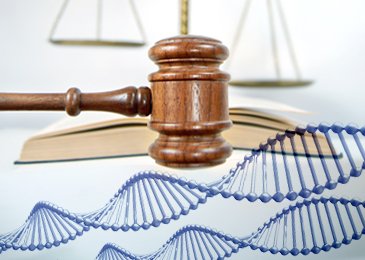US Supreme Court rules against gene patenting
June 14, 2013 | Friday | News | By BioSpectrum Bureau
US Supreme Court rules against gene patenting
In a case that has gathered worldwide attention for its implications on the global biotech industry, the US Supreme Court has ruled against the patenting of human genes. The case involves Myriad Genetics, a US based company that hold patents for two genes, namely BRCA1 and BRCA2, the overexpression of which indicate a woman's chances of developing breast or ovarian cancer. These were recently in the news when Hollowood actress Angelina Jolie had used a test based on these genes to understand if she was in the cohort of at risk breast cancer patients.
At the same time, the Supreme Court has ruled that cDNA or complementary DNA that is the DNA synthesized complemetarily from an mRNA strand. In response to the judgement, Jim Greenwood, president and CEO of the Biotechnology Industry Organization (BIO), issued a following statement which said,"The Supreme Court today summarily ruled that so-called cDNA remains eligible for patenting. cDNA is the commercially most important form of DNA used in biotechnology. Today's decision offers urgently-needed certainty for research-driven companies that rely on cDNA patents for investment in innovation."
He however approached the judgement on patenting genes with caution by saying, "In other respects, however, the Supreme Court's decision today represents a troubling departure from decades of judicial and Patent and Trademark Office precedent supporting the patentability of DNA molecules that mimic naturally-occurring sequences. In addition, the Court's decision could unnecessarily create business uncertainty for a broader range of biotechnology inventions.The United States is now the only developed country to take such a restrictive view of patent eligibility, signaling an unjustified indifference towards our global economic and scientific leadership in the life sciences."
The first controversy regarding patenting in genetics had erupted in 1971, when Dr.Ananda Chakrabarty, then a employee at GE, had rengineered to strains of bacteria that could be used in clearing oils spills. He was initially denied a patent for the genetically modified organism, but later granted one on the basis of the fact that the organism was sufficiently modified by using specifi techniques. Dr.Ananda Chakrabarty is currently a senior science mentor at Ahmedabad based Amrita Therapeutics.
In addition to the views of BIO, Mr.Greenwood added that
paents have never conferred ownership over genes. He said," While Myriad Genetics is not a member of BIO, we do represent companies that research, develop and use modern biotechnology to produce products ranging from life-saving medicines and vaccines to renewable fuels, industrial enzymes and disease-or pest-resistant crops. Such companies have long relied on patents on preparations of DNA molecules and other biological chemicals in order to bring innovative, socially beneficial products to the marketplace."









